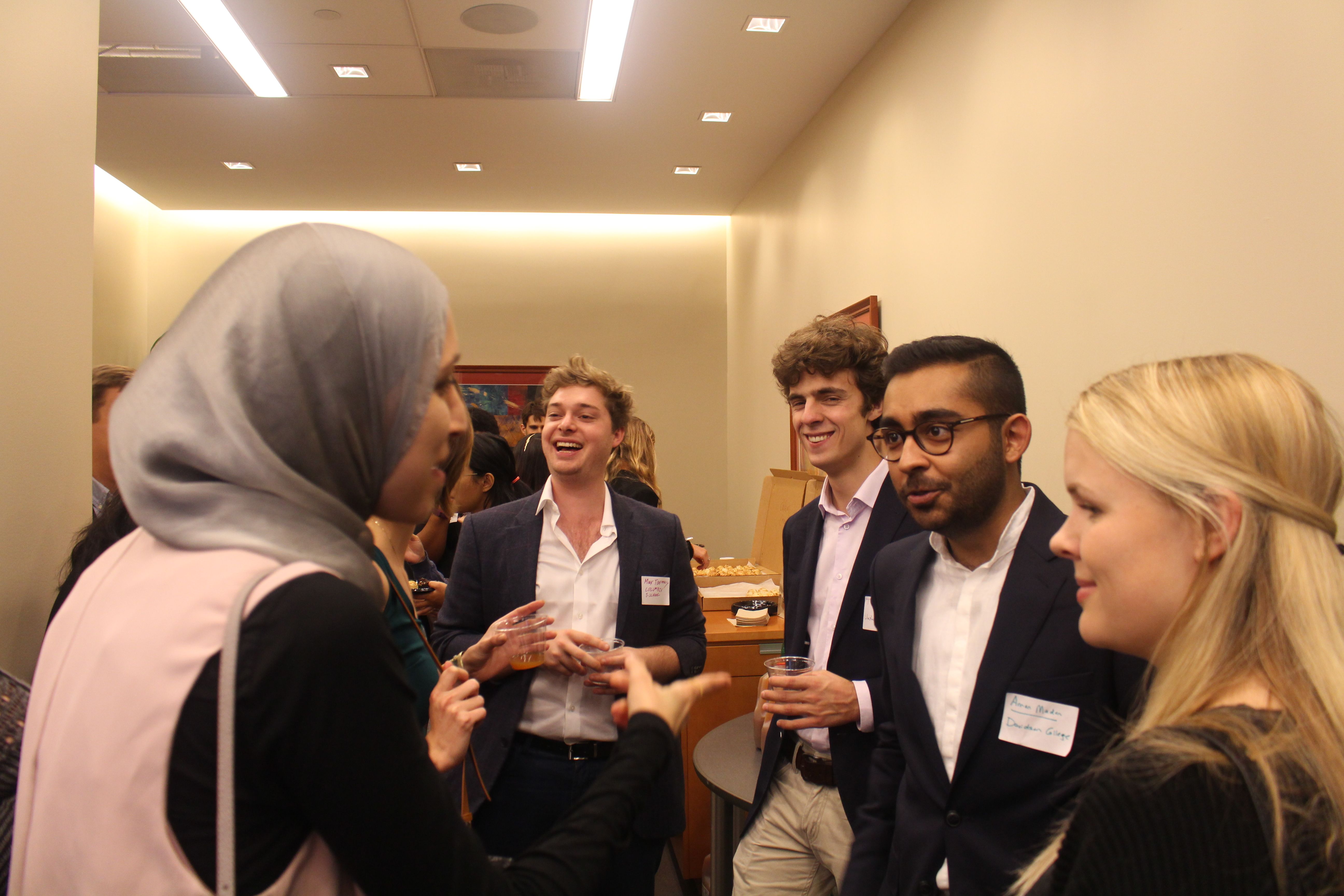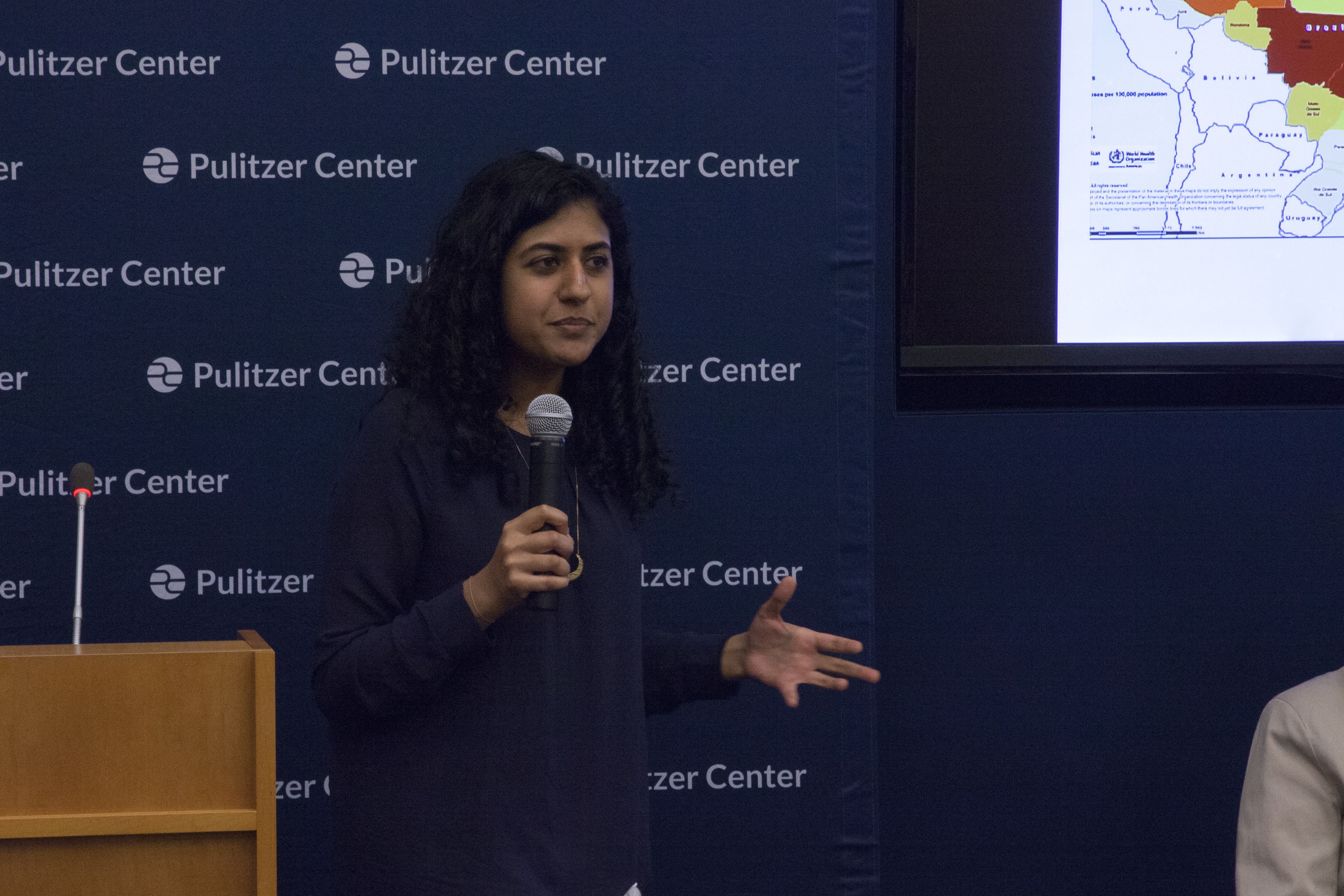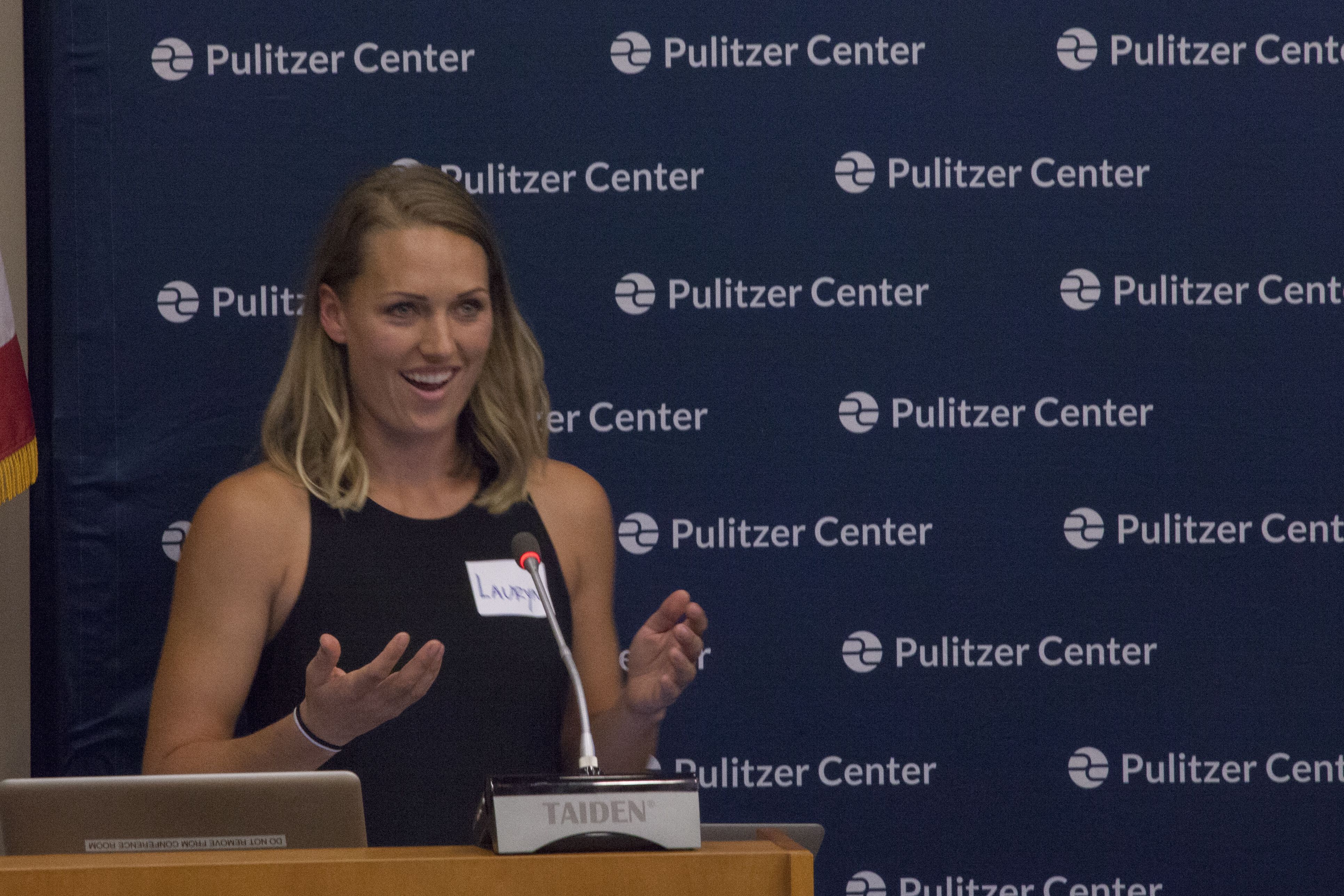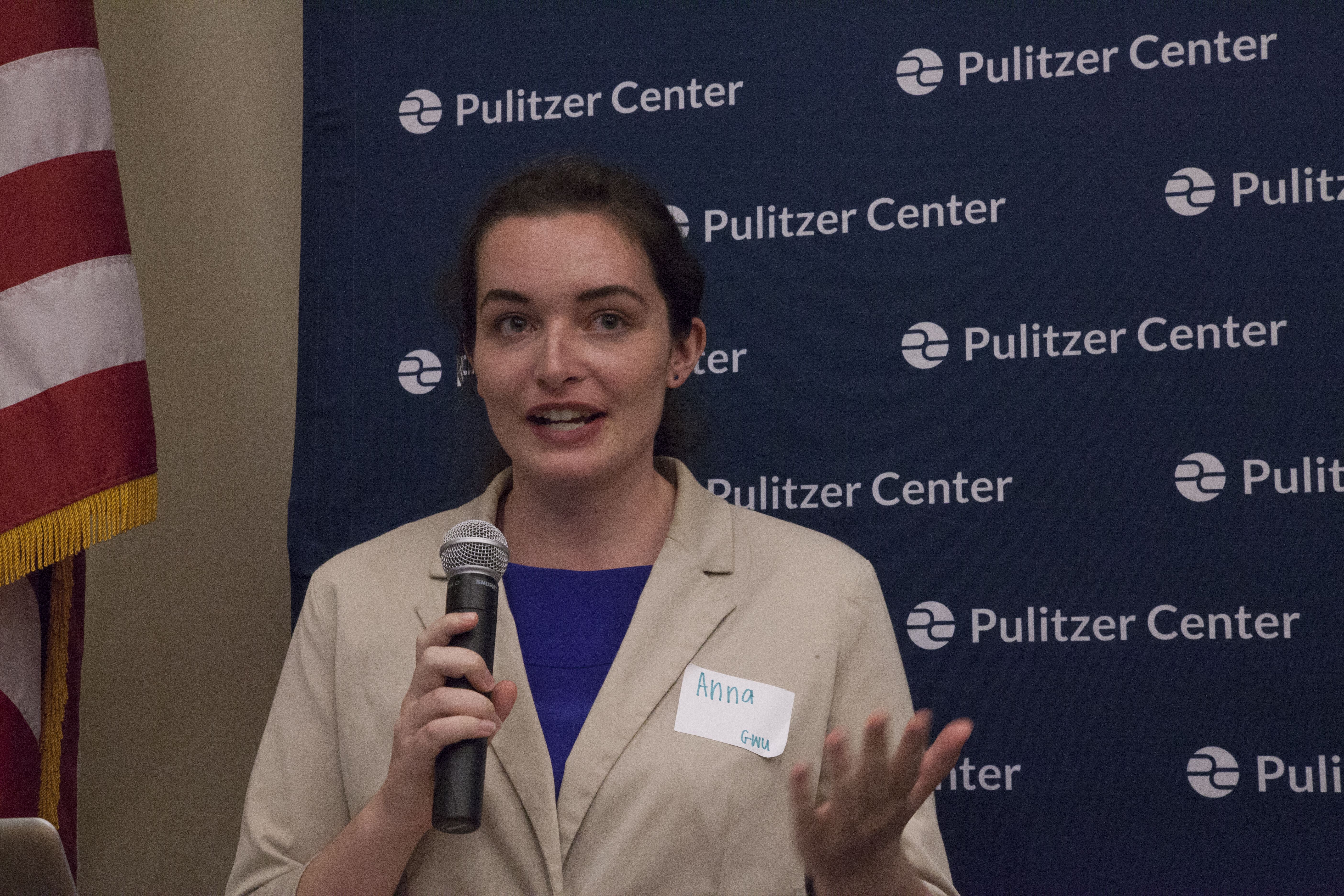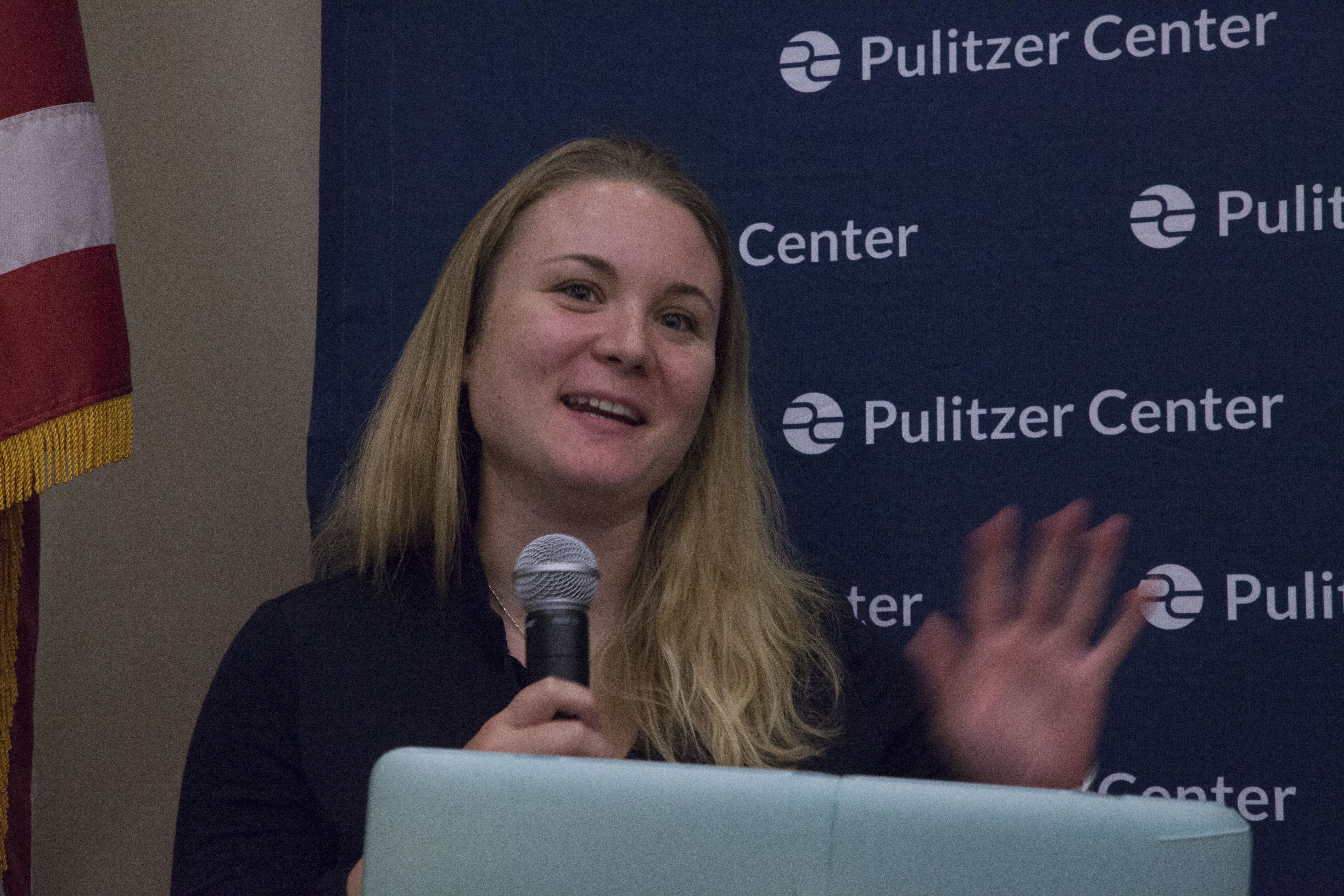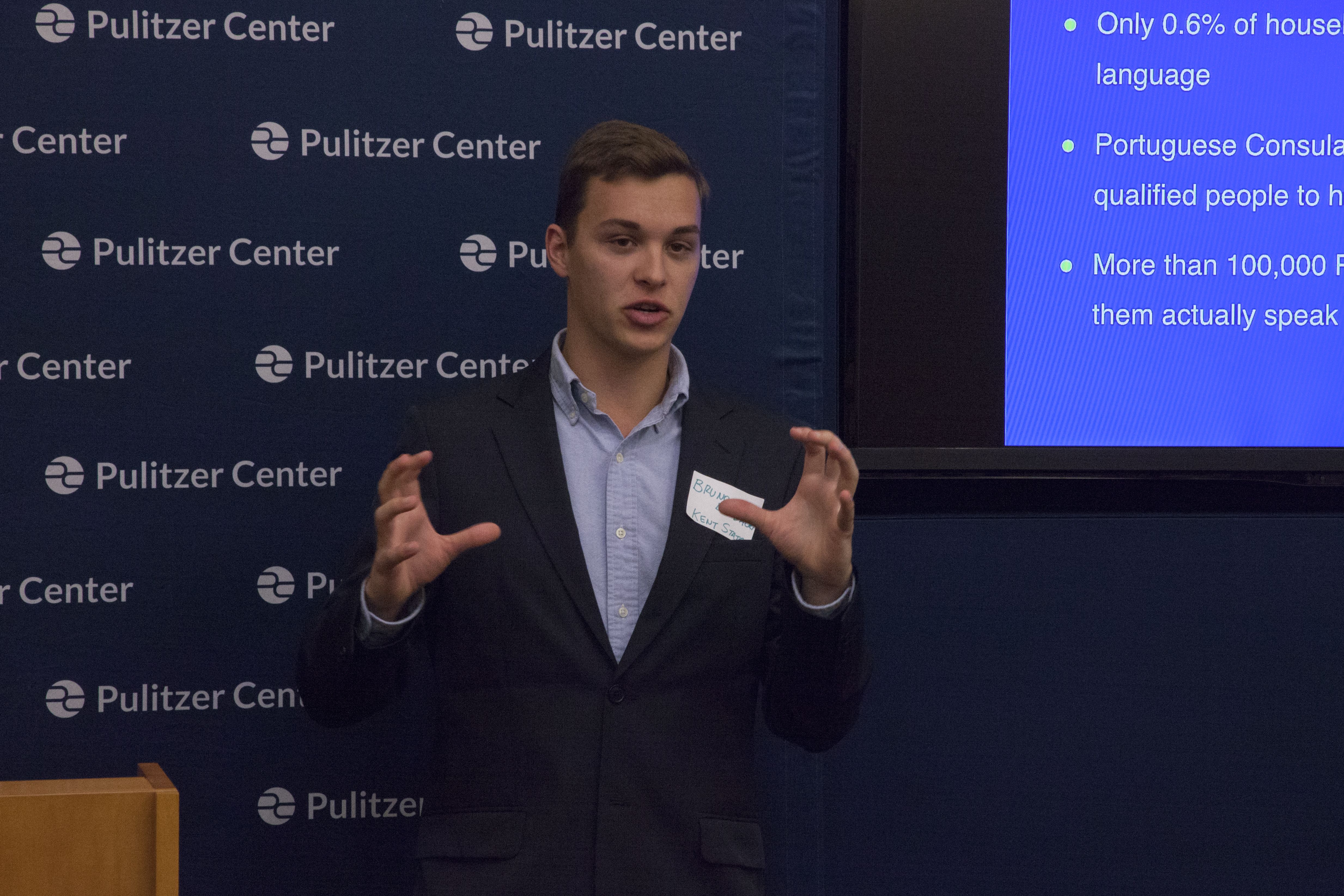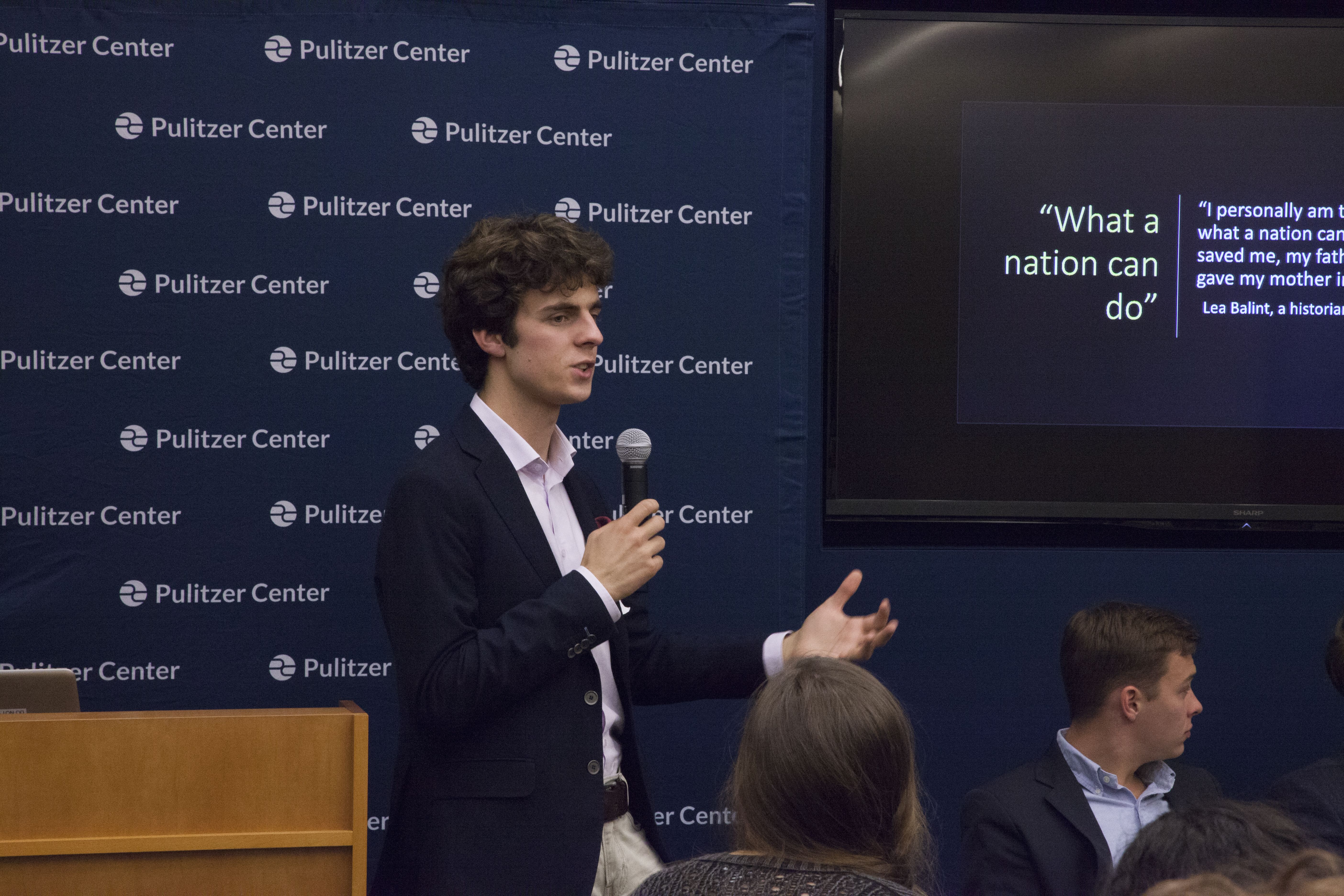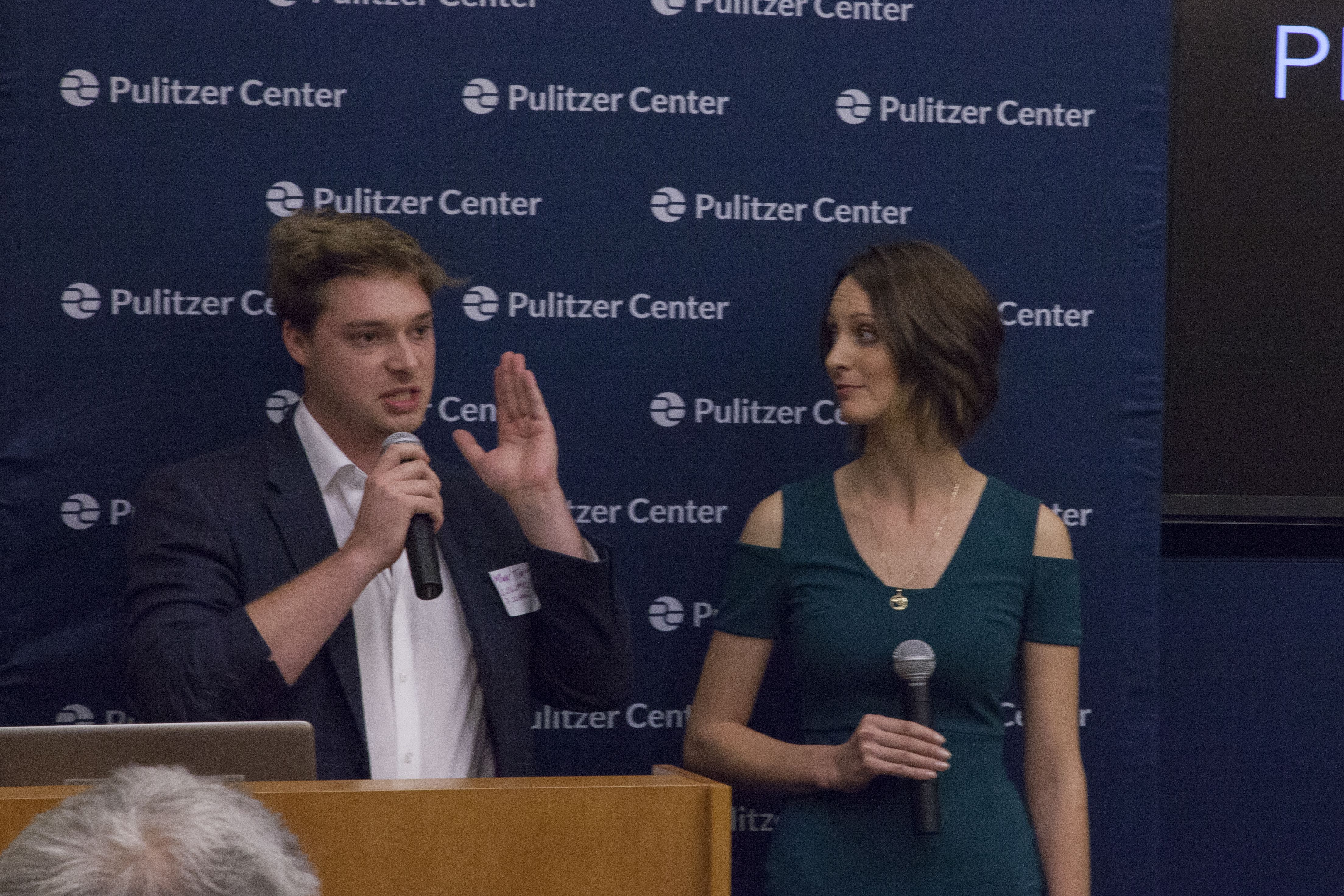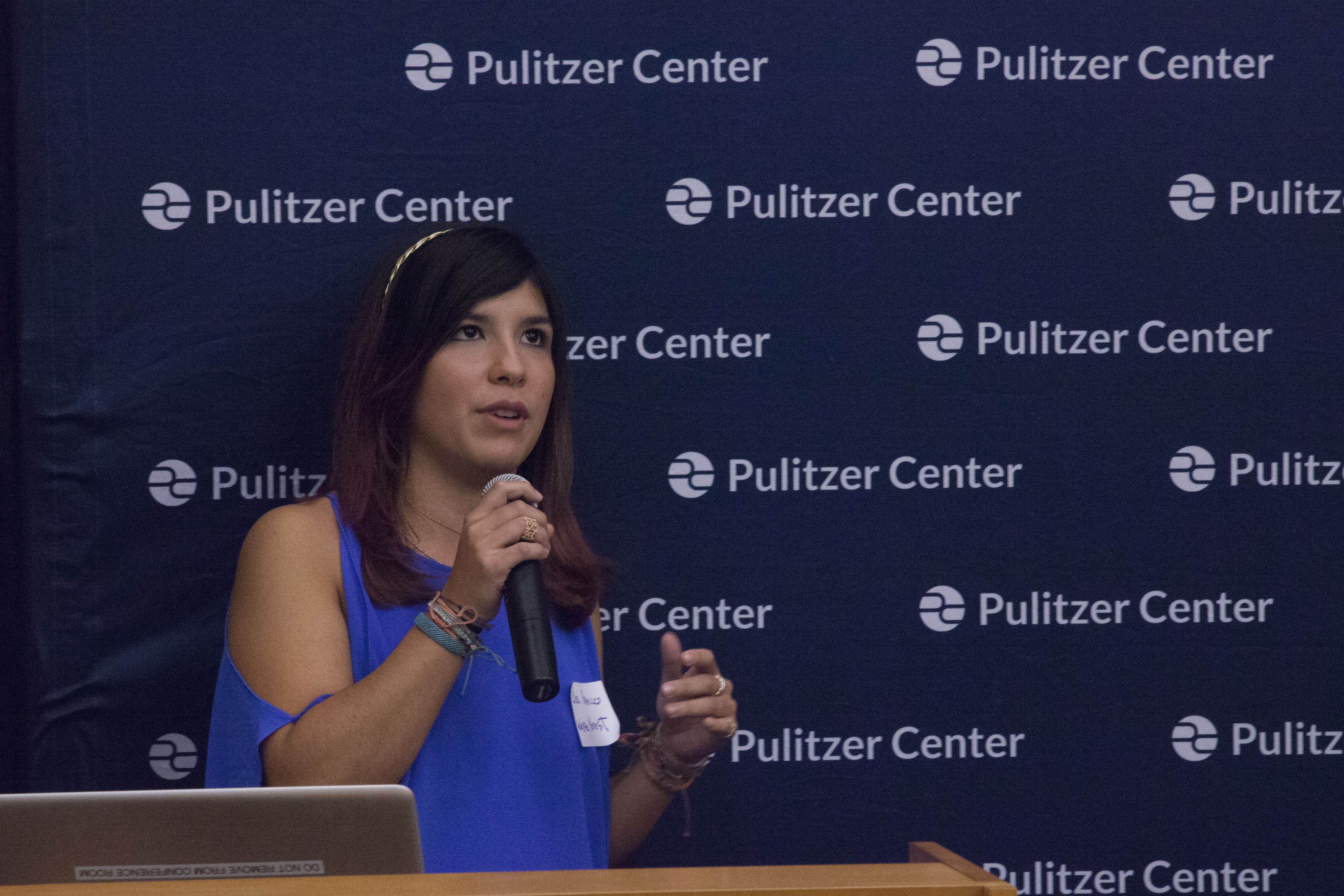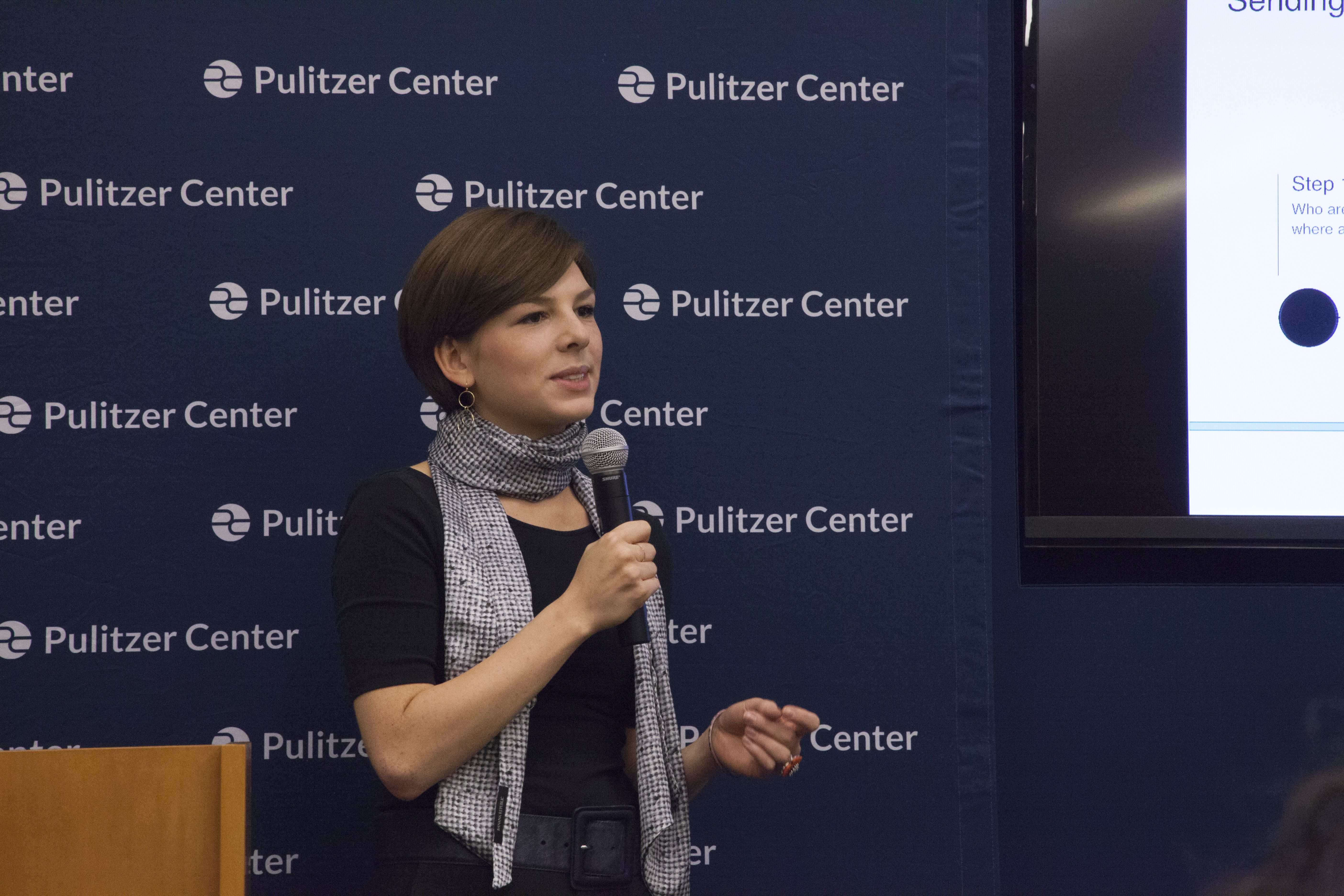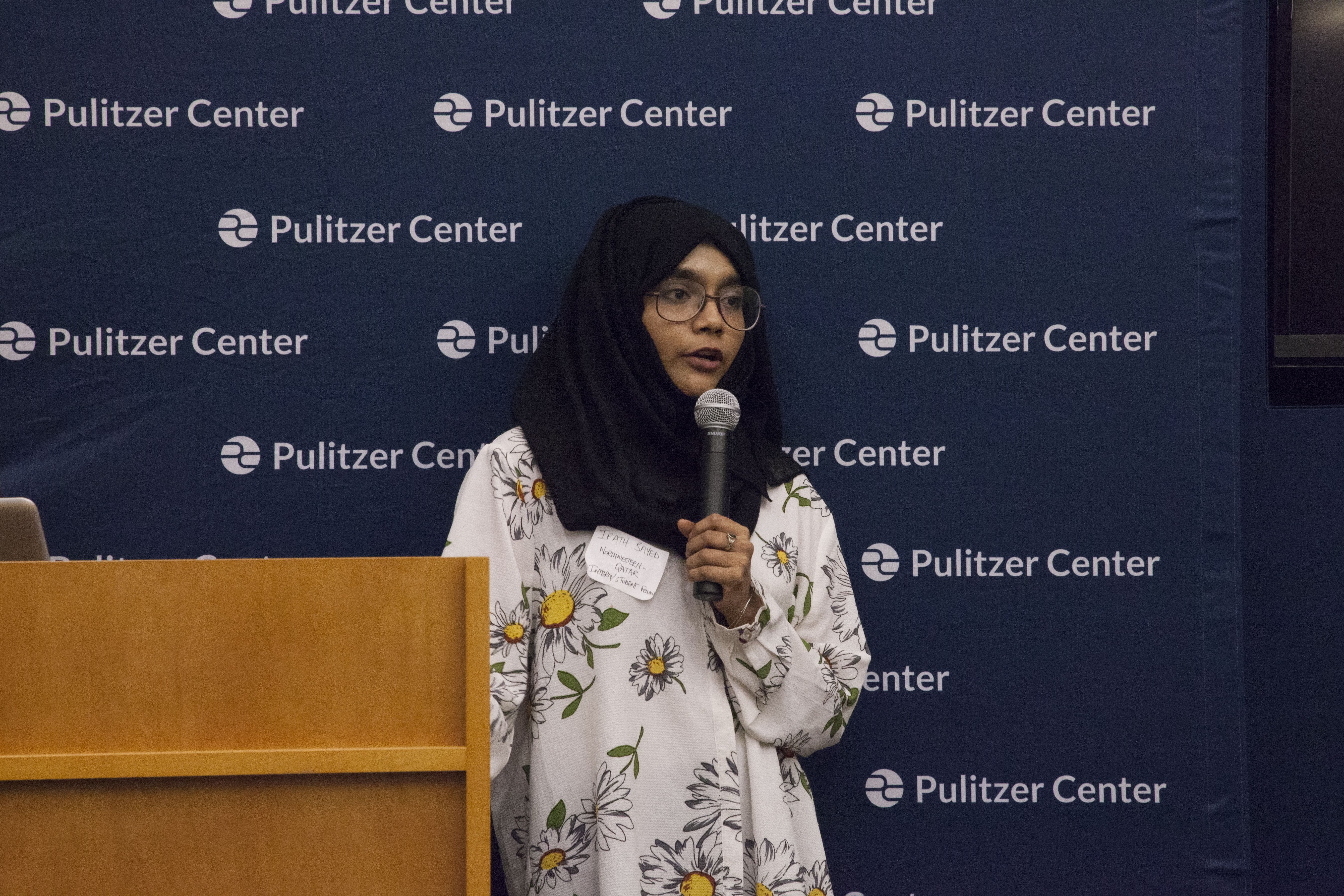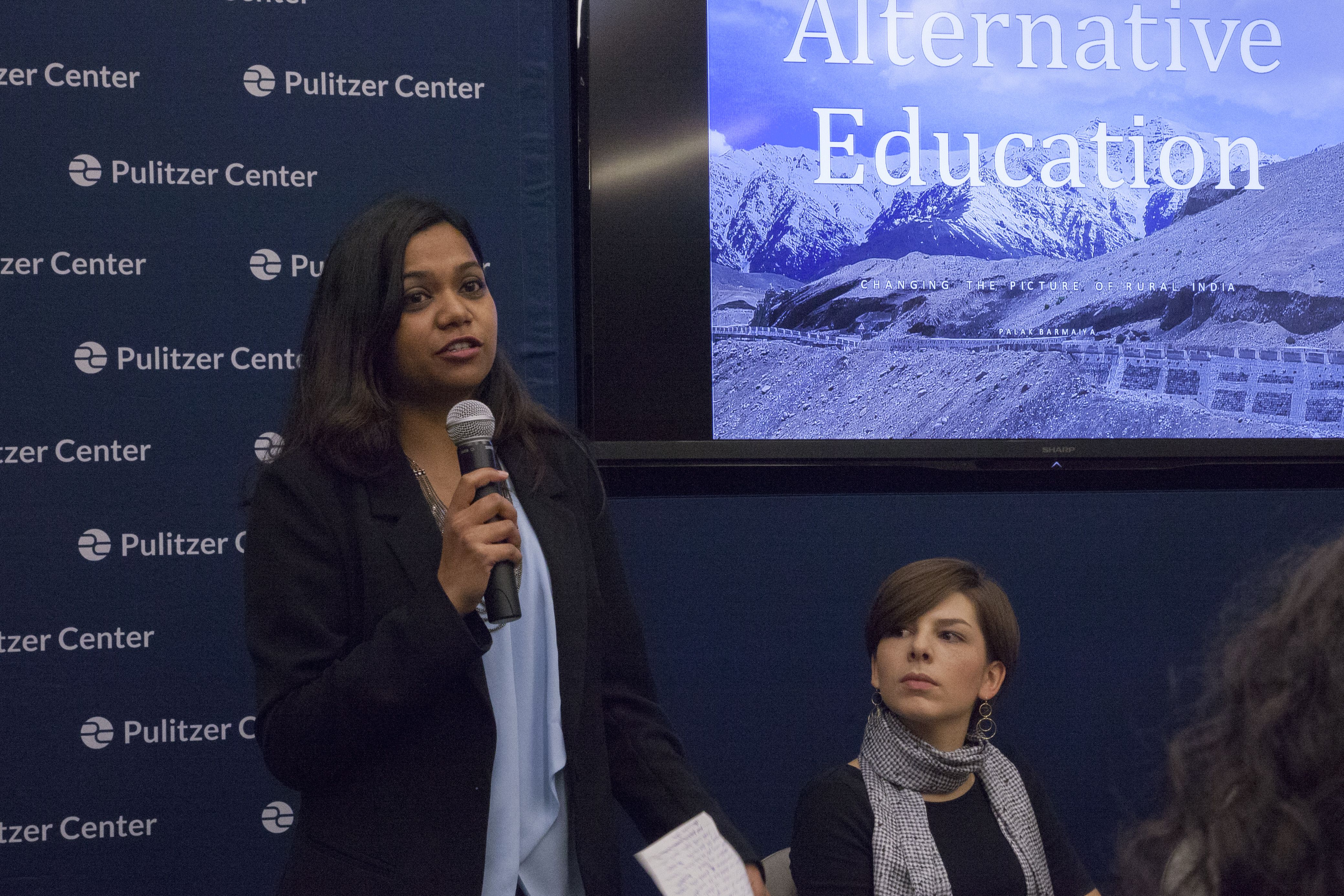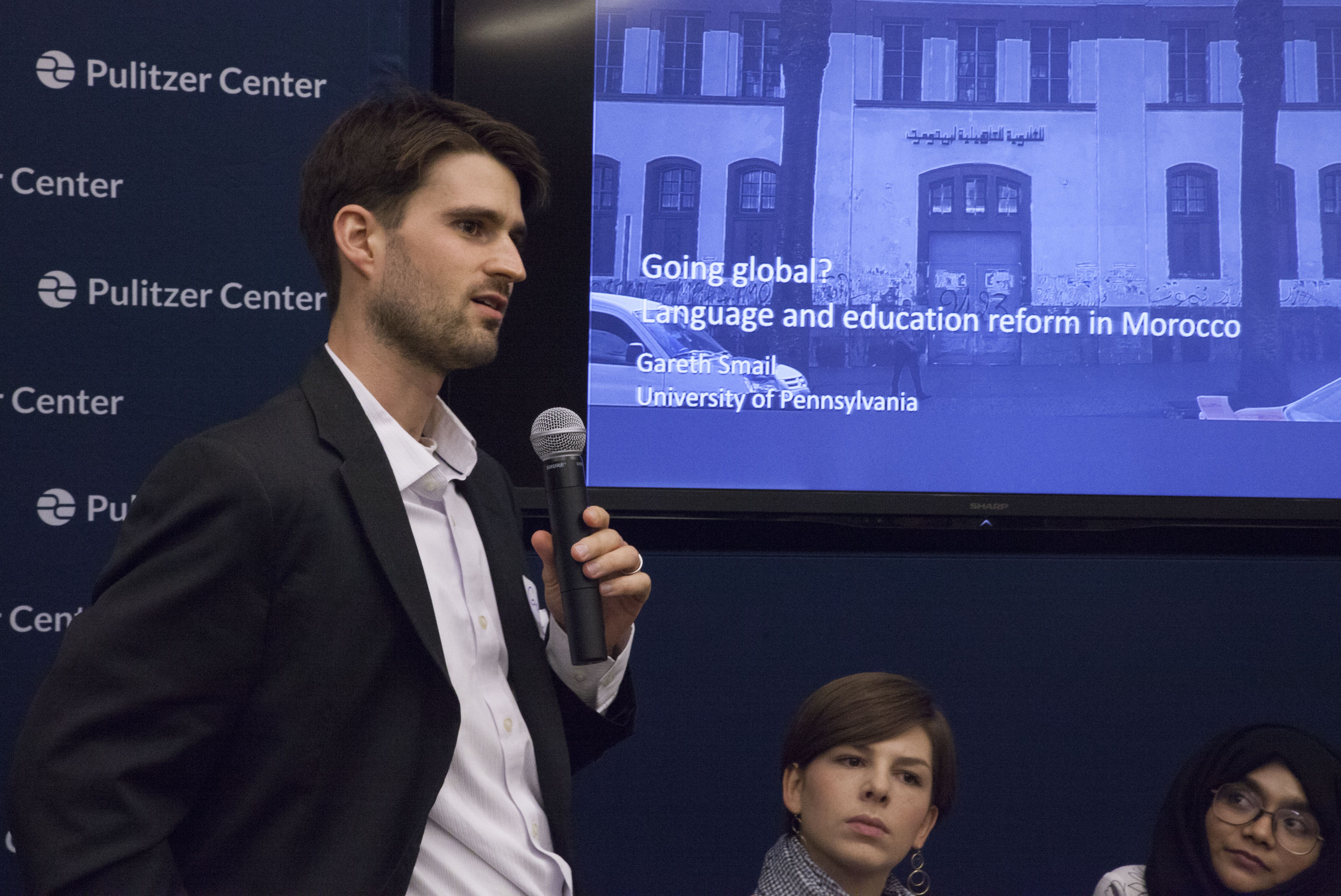On Friday, October 20, 2017, the Pulitzer Center welcomed 35 Campus Consortium student fellows to Washington D.C. for the fourth annual Washington Weekend. Students came together with their peers to present and discuss their Pulitzer Center-supported international reporting projects. Friday’s presentations focused on a variety of global issues including global health, identity, and children’s rights.
Global Health
Poonam Daryani from Johns Hopkins Bloomberg School of Public Health traveled to Brazil to unearth Zika’s lasting impacts on families and their children. She tells the story of a single mother named Mylene and the obstacles that she faces in caring for her young son, Davi, who was born with congenital Zika syndrome. Daryani highlighted the role of women caregivers, “These women are the frontline care providers and scientists who are learning about the epidemic.”
Boston University fellow Lauryn Claassen explores the connections between combating the Zika virus, comprehensive sexual education, and reproductive health planning. Reporting from El Salvador, Claassen found that information shared with the public is often ineffective and fails to reach sexually active couples who need it the most. “I see all of these issues as symptoms of a larger problem,” said Claassen, “People need to understand how their bodies function and how they interact with other bodies.”
Jessica Rowan from Flagler College spent time in Costa Rica interviewing young people living with Type 1 Diabetes. She found that misinformation about the disease causes many doctors to misdiagnose patients and that diabetics who live in rural areas are hindered by the long distances they must travel for treatment.
Anna Russell from George Washington University reports on the stigma in Haiti surrounding breast and cervical cancer. “In the U.S. when someone is diagnosed with cancer, for the most part, their families and communities rally around them,” said Russell. “That is not the case in Haiti.” Because cancer is thought to be non-survivable, 80 percent of women are left by their partners upon diagnoses.
Erica Andersen from Boston University traveled to Sweden to interview scientists and experts on pharmaceutical pollution in water. Scientists are exposing fish to different chemicals to see how they react differently in environments with aggressive predators. Andersen also spoke to government regulatory agencies, pharmaceutical companies, and consumers about how decisions regarding water pollution are made and what can be done to protect the environment.
Defining Identity
Inspired by his Brazilian roots, Bruno Beidacki of Kent State University traveled to Macau, a region in China formerly controlled by Portugal, to investigate the decline of the Portuguese language: While cultural awareness events such as the Macau International Music Festival draw large crowds, only .6 percent of households speak Portuguese.
Guilford College student fellow Praveena Somasundaram showed a video of her work exploring the challenges and opportunities for women in India. She highlighted the growing role of government-sponsored women's empowerment groups that provide free job training courses and loans to women.
Tomek Cebrat from Washington University in St. Louis presented on the identity of Polish-Jewish immigrants in Israel. Cebrat discussed aspects of shared cultural memory and political action.
The team from Columbia University Graduate School of Journalism, Sarah Bellingham and Max Toomey, interviewed grassroots Trump supporters from Bucks County, Pennsylvania, for their documentary film, People 4 Trump. Their presentation highlighted the sentiments of residents, including their feelings towards immigration and the role of the news media. “Nothing could ever be Trump’s fault,” said Bellingham. “He was like an empty vessel that they put all of their hopes and dreams in.”
Lila Franco from Wake Forest University opened her presentation on Venezuela’s current political crisis with an immersive video showcasing the sights and sounds of the country. Riots, skyrocketing inflation rates, and scarce resources have left many Venezuelans facing homelessness, food shortages, and corruption.
Children's Rights
Hunter College fellow Amy Russo visited a youth asylum center in Sweden to report on child refugees. She reported that many young people may turn 18 before the process is completed, disqualifying them from youth refugee protections. “Age is critical,” Russo said, sharing that while 75 percent of youth refugees are accepted, only 12.8 percent of adults are granted refugee status.
Jueun Choi and Ifath Sayed from Northwestern University in Qatar reported on refugee children in Malaysia. Their presentation focused on Hasan, a 17-year-old Syrian refugee who was arrested and held in a detention center for nine days. Choi and Sayed discussed the traumatic mental health effects that stemmed from the abuse Hasan endured during his imprisonment. They also highlighted his determination: Hasan says, “I need to study because I still have that dream to rebuild my country.”
Palak Barmaiya from South Dakota State University investigated alternative education programs in Ladakh, a region in northern India. She reported on a movement called SECMOL (Students' Educational and Cultural Movement of Ladakh) which incorporates local languages into textbooks to improve student performance. She also discussed alternative schools that use eco-friendly and sustainable living to teach students leadership skills.
Gareth Smail from the University of Pennsylvania presented on language reform in Morocco. Smail interviewed a student named Hussein who spoke Arabic throughout elementary school, French as a university student, and now studies in English to complete research for his master's degree. Morocco’s new International Baccalaureate program, Smail reported, allows high school science students to take courses in French and English and has increased the number of students who are able to pass their national exams.
Westchester Community College fellow Viridiana Vidales ended the day with a presentation on her upcoming trip to New Mexico to report on sports programs promoting healthier lifestyles and leadership skills for Native American youth. She shared that food deserts and lack of access to sports and physical activities have contributed to an obesity epidemic among young Native Americans, half of whom develop Type 2 diabetes.
